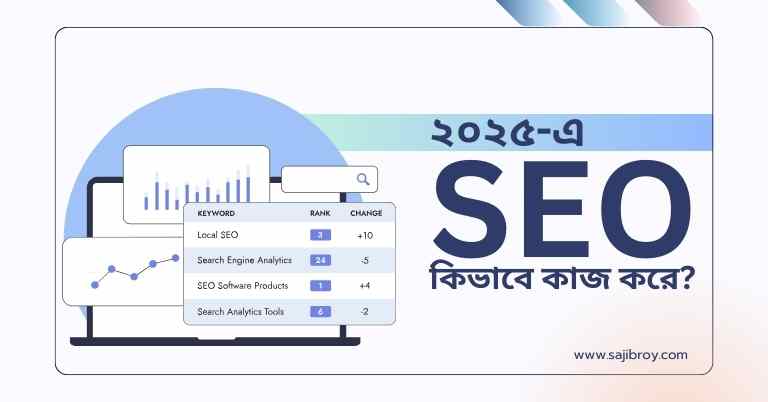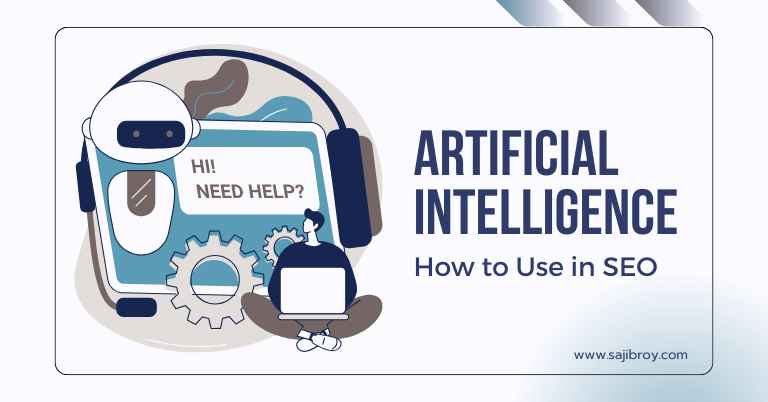B2B SEO trends in 2024 include optimizing for voice search, adopting mobile-first indexing, prioritizing user experience, leveraging AI and machine learning, and focusing on E-A-T (Expertise, Authoritativeness, Trustworthiness). Unique and user-based content will be given more emphasis and rewards as AI continues to rise.
The increasing importance of local SEO and mobile optimization will also shape the SEO landscape. AI and AR will revolutionize the way we interact with online content. These trends highlight the need for businesses to stay updated and adapt their SEO strategies to remain competitive in the evolving digital marketing landscape.
Embracing these trends will help businesses drive go-to-market success and improve their online presence.
Let's See the Topic Overview
Leveraging AI For B2B SEO Success
Artificial Intelligence (AI) has revolutionized numerous industries, and B2B SEO is no exception. By harnessing the power of AI, businesses can gain a competitive edge in the ever-evolving digital landscape. From keyword research and content optimization to personalization and automation, AI-powered tools and algorithms provide valuable insights and automation capabilities that can drive B2B SEO success in 2024 and beyond.
Using AI-powered tools for keyword research and analysis
In the world of B2B SEO, understanding keyword trends and finding the right keywords to target is crucial. AI-powered tools can streamline this process by analyzing vast amounts of data and providing actionable insights. These tools leverage machine learning algorithms and natural language processing techniques to identify relevant keywords, analyze search intent, and discover untapped opportunities. By leveraging AI for keyword research, businesses can optimize their content for the right keywords, enhance their visibility, and attract targeted B2B traffic.
Implementing AI algorithms for content optimization
Creating compelling and optimized content is essential for B2B SEO success. AI algorithms can enhance content optimization by analyzing various factors such as readability, relevancy, and user engagement. By studying patterns from successful content, AI algorithms can suggest improvements, highlight potential gaps, and even generate content based on specific keywords or topics. This level of content optimization not only improves search engine rankings but also enhances user experience, driving better engagement and conversions.
Personalization and targeting with AI in B2B SEO
In today’s competitive B2B landscape, personalization is key to capturing the attention of potential customers. AI-powered tools can analyze user behavior, preferences, and intent to deliver personalized content and experiences. By leveraging AI-driven personalization, businesses can segment their audience, tailor their messaging, and create targeted campaigns that resonate with their target market. This level of tailored targeting not only improves SEO performance but also increases the likelihood of converting leads into valuable customers.
AI-driven automation for SEO campaigns
With the increasing complexity of SEO campaigns, automation has become a necessity. AI-driven automation tools can streamline various aspects of SEO campaigns, including technical optimizations, backlink analysis, and performance tracking. By automating these repetitive tasks, businesses can save time and resources while ensuring consistent and accurate execution. AI-driven automation also enables businesses to adapt quickly to algorithm updates, identify issues, and implement corrective actions promptly, ensuring their B2B SEO campaigns are always optimized for success.
In conclusion, leveraging AI for B2B SEO success in 2024 requires businesses to embrace the power of AI-powered tools and algorithms. By using these tools for keyword research, content optimization, personalization, and automation, businesses can stay ahead of the competition and drive meaningful results in the ever-changing digital landscape.
Maximizing Success With Voice Search
Understanding the rise of voice search in B2B SEO
Voice search has become an integral part of our everyday lives. With the advent of smart speakers and virtual assistants, more and more people are using their voice to search for information, make queries, and interact with devices. The rise of voice search is not just limited to B2C, but it also has significant implications for B2B SEO strategies.
Optimizing website content for voice search queries
To maximize success with voice search, B2B businesses need to optimize their website content for voice search queries. This includes understanding the way people speak and the natural language they use when conducting voice searches. Unlike text-based searches which are typically short and concise, voice searches tend to be longer and more conversational.
- Use long-tail keywords: Long-tail keywords are more specific and resemble the way people speak. By incorporating long-tail keywords into your website content, you increase the chances of your website appearing in voice search results.
- Create FAQs: Frequently asked questions (FAQs) are a great way to optimize your website content for voice search. By anticipating the questions that your target audience may ask and providing comprehensive answers, you increase the chances of your content being featured in voice search results.
- Structured data markup: Implementing structured data markup on your website helps search engines understand the context of your content and improves its chances of being featured as a voice search result. This includes marking up your content with schema.org markup and using appropriate header tags.
Voice search strategies for B2B businesses
When it comes to voice search strategies, B2B businesses need to consider the unique characteristics of their target audience and tailor their approach accordingly. Here are some strategies to consider:
- Focus on industry-specific keywords: B2B businesses should prioritize industry-specific keywords that are relevant to their target audience. By understanding the specific language and terminology used in the industry, you can optimize your website content for voice search queries.
- Provide in-depth information: B2B buyers often conduct research and require detailed information before making a purchase decision. By providing in-depth and comprehensive information on your website, you increase the chances of being featured in voice search results.
- Optimize for local voice searches: B2B businesses that operate in specific geographic regions should pay attention to local voice searches. Optimizing your website content for local keywords and including location-specific information can help you capture voice search traffic from potential customers in your area.
Incorporating natural language processing in SEO for voice search
Natural language processing (NLP) plays a crucial role in optimizing website content for voice search. By understanding how NLP works, B2B businesses can ensure that their website content aligns with the way people speak and the queries they make. Here are some ways to incorporate NLP in SEO for voice search:
- Use conversational language: When creating content, use conversational language that mimics how people speak. This helps search engines better understand the context and intent of your content.
- Optimize for question-based queries: Voice searches often consist of questions. By optimizing your website content to provide direct and concise answers to common questions, you increase the chances of being featured as a voice search result.
- Utilize natural language understanding: Natural language understanding technology helps search engines better comprehend the meaning behind queries and deliver relevant results. By aligning your website content with natural language understanding principles, you improve its chances of appearing in voice search results.
In summary, maximizing success with voice search requires understanding its rise in B2B SEO, optimizing website content for voice search queries, implementing voice search strategies for B2B businesses, and incorporating natural language processing in SEO for voice search.
Embracing Mobile-First Indexing
Mobile devices have become an integral part of our lives, and they are now the primary way people access the internet. This shift has forced search engines like Google to prioritize mobile-friendly websites and introduced the concept of mobile-first indexing. In this article, we will explore the importance of mobile optimization in B2B SEO and the strategies you can implement to improve mobile user experience and enhance your search rankings.
The importance of mobile optimization in B2B SEO
Mobile optimization is no longer optional; it is a necessity for B2B websites looking to attract and engage their target audience. With more people using smartphones and tablets for work-related tasks, having a mobile-friendly website is crucial for delivering a seamless user experience. Additionally, Google now prioritizes mobile-first indexing, meaning it ranks search results based on the mobile version of a website. This is a clear indication that mobile optimization plays a significant role in search rankings and visibility.
Mobile-first indexing and its impact on search rankings
Mobile-first indexing is a fundamental shift in how search engines crawl and rank websites. In the past, search engines primarily focused on the desktop version of a site. However, with the prevalence of mobile devices, Google now gives priority to the mobile version when indexing and ranking web pages. This means that if your website is not mobile-friendly or lacks a responsive design, it may be penalized in search rankings, leading to lower visibility and fewer organic traffic.
Implementing responsive design for mobile-friendly websites
A responsive design is essential for creating a mobile-friendly website that adapts to different screen sizes and resolutions. It ensures that your website looks and functions seamlessly across all devices, providing users with an optimal browsing experience. By implementing responsive design, you can avoid duplicate content issues and improve your website’s usability, which has a positive impact on search rankings. A responsive design also saves time and effort in managing and updating your website, as you only need to maintain a single version that works across all devices.
Strategies for improving mobile user experience in B2B SEO
To enhance mobile user experience and improve your B2B SEO efforts, consider the following strategies:
- Optimize page load speed: A fast-loading website is crucial for mobile users who are often on the go and rely on their devices for quick access to information. Compress images, minimize code, and leverage caching techniques to improve page load speed.
- Ensure mobile-friendly navigation: Simplify your website navigation by using clear and concise menus that are easy to navigate with a touch. Avoid dropdown menus that may be challenging to use on smaller screens.
- Create mobile-specific content: Consider mobile users’ needs and preferences when creating content. Use shorter paragraphs, clear headings, and bullet points to make the content more digestible on smaller screens.
- Optimize for voice search: With the rise of voice assistants like Siri and Google Assistant, optimizing your website for voice search queries can give you a competitive edge. Focus on conversational keywords and provide concise and direct answers to common questions.
By implementing these strategies, you can improve the mobile user experience on your B2B website and boost your search rankings in the mobile-first indexing era.
Prioritizing User Experience In B2B SEO
In the ever-evolving world of B2B SEO, user experience has emerged as a crucial factor in achieving higher search engine rankings. As search engines become more sophisticated, they emphasize providing the best experience for users. This shift has made it necessary for businesses to prioritize user experience in their SEO strategies in order to stay ahead of the curve.
The role of user experience in search engine rankings
Search engines are constantly getting smarter and are now able to analyze user behavior and engagement on websites. This means that user experience directly impacts search engine rankings. When users have a positive experience on a website, they are more likely to engage with the content, spend more time on the site, and visit more pages. These signals tell search engines that the website is providing value to users, resulting in higher rankings.
Website design and navigation for enhanced user experience
The design and navigation of a website play a crucial role in providing a seamless user experience. A well-designed website with an intuitive navigation menu allows users to find relevant information quickly and easily. Clear and concise headings and subheadings enable users to scan the content and find what they are looking for without any hassle. Additionally, incorporating responsive design ensures that the website is accessible and optimized for all devices, further enhancing the user experience.
Loading speed optimization and its impact on user satisfaction
Website loading speed is a critical factor in user satisfaction and can significantly impact bounce rates. Users expect websites to load quickly, and any delays can lead to frustration and abandonment. Optimize your website’s loading speed by compressing images, minifying code, and leveraging caching techniques. This will not only improve user satisfaction but also increase the chances of higher search engine rankings, as page speed is now a ranking factor for search engines.
Utilizing data analytics to improve user experience in SEO
Data analytics is a powerful tool that can provide valuable insights into user behavior and preferences. By analyzing user session duration, click-through rates, and bounce rates, you can identify areas for improvement and optimize your website for a better user experience. Use tools like Google Analytics to track and measure user engagement metrics, and leverage this data to make informed decisions about content, design, and user flow. Continuously monitoring and improving user experience can lead to higher search engine rankings and increased organic traffic.
Focusing On E-A-T (Expertise, Authoritativeness, Trustworthiness)
The SEO landscape is ever-evolving, and it is crucial for B2B businesses to stay ahead of the curve to maintain their online presence and drive organic traffic. One key trend that is set to dominate B2B SEO in 2024 is the focus on E-A-T – Expertise, Authoritativeness, and Trustworthiness. By understanding and implementing the concept of E-A-T, businesses can establish themselves as reliable sources of information, build credibility, and earn the trust of their target audience.
Understanding the concept of E-A-T in B2B SEO
E-A-T stands for Expertise, Authoritativeness, and Trustworthiness. It is a concept that Google uses to evaluate the quality and credibility of websites. In the B2B context, it is essential to showcase expertise in your industry, establish authority within your niche, and build trust with your audience. By focusing on these aspects, you can improve your website’s visibility in search engine results and attract high-quality organic traffic.
Establishing expertise through high-quality content
To demonstrate expertise, B2B companies need to create high-quality, informative content that addresses the pain points and challenges of their target audience. By producing authoritative articles, blog posts, and whitepapers, businesses can position themselves as industry leaders. It is important to focus on relevant topics, conduct thorough research, and present the information in a clear and concise manner, ensuring it is easy for readers to digest and understand.
Building authority and trust with backlinks and testimonials
Building authority is crucial for B2B SEO success. One way to achieve this is through backlinks, which are links from other reputable websites that point to your site. Backlinks act as a vote of confidence, indicating that your content is valuable and trustworthy. Investing in outreach efforts and collaborating with industry influencers can help you secure valuable backlinks. Additionally, featuring testimonials from satisfied clients and partners on your website can further enhance your authority and build trust with your target audience.
Ensuring trustworthiness through transparent practices
Trustworthiness is a critical factor for B2B businesses. To establish trust, be transparent in your business practices. Clearly communicate your company’s values, mission, and approach. Provide accurate and up-to-date information on your website, including contact details, privacy policy, and terms of service. Implement secure payment methods and highlight your commitment to data protection. By prioritizing transparency, you can instill confidence in your audience, encouraging them to engage with your brand and convert into loyal customers.
In conclusion, as B2B SEO continues to evolve, focusing on E-A-T (Expertise, Authoritativeness, Trustworthiness) will be key to success in 2024. By understanding the concept of E-A-T and implementing strategies to establish expertise, build authority, and ensure trustworthiness, businesses can secure higher rankings in search engine results and attract valuable organic traffic.
Conclusion
As we look ahead to 2024, it’s clear that B2B SEO trends will continue to evolve. The rise of AI and machine learning will revolutionize the way we interact with online content, making it more important than ever to prioritize user experience and create unique, user-based content.
Voice search optimization will also play a significant role, as more and more users rely on voice assistants like Siri and Alexa to search for information. Additionally, local SEO and mobile optimization will continue to be key factors in driving organic traffic and improving search rankings.
Embracing these trends and staying ahead of the curve will be essential for businesses looking to succeed in the digital landscape of the future. With the ever-changing nature of SEO, it’s crucial for marketers to stay informed and adapt their strategies accordingly.
Stay on top of these trends, and you’ll be well-positioned for success in the B2B SEO landscape of 2024.




![6-Month Local SEO Plan [Download Your Complete Proposal Template]](https://www.sajibroy.com/wp-content/uploads/2025/01/6-Month-Local-SEO-Plan-Download-Your-Complete-Proposal-Template.jpg)







